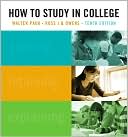Category Books
- Fiction Books & Literature
- Graphic Novels
- Horror
- Mystery & Crime
- Poetry
- Romance Books
- Science Fiction & Fantasy
- Thrillers
- Westerns
- Ages 0-2
- Ages 3-5
- Ages 6-8
- Ages 9-12
- Teens
- Children's Books
- African Americans
- Antiques & Collectibles
- Art, Architecture & Photography
- Bibles & Bible Studies
- Biography
- Business Books
- Christianity
- Computer Books & Technology Books
- Cookbooks, Food & Wine
- Crafts & Hobbies Books
- Education & Teaching
- Engineering
- Entertainment
- Foreign Languages
- Game Books
- Gay & Lesbian
- Health Books, Diet & Fitness Books
- History
- Home & Garden
- Humor Books
- Judaism & Judaica
- Law
- Medical Books
- New Age & Spirituality
- Nonfiction
- Parenting & Family
- Pets
- Philosophy
- Political Books & Current Events Books
- Psychology & Psychotherapy
- Reference
- Religion Books
- Science & Nature
- Self Improvement
- Sex & Relationships
- Social Sciences
- Sports & Adventure
- Study Guides & Test Prep
- Travel
- True Crime
- Weddings
- Women's Studies
How to Study in College » (10th Edition)

Authors: Walter Pauk, Ross J. Q. Owens
ISBN-13: 9781439084465, ISBN-10: 1439084467
Format: Paperback
Publisher: Cengage Learning
Date Published: January 2010
Edition: 10th Edition
Author Biography: Walter Pauk
A true pioneer in the field of study skills, Dr. Walter Pauk has been dispensing common-sense advice to students for more than half a century. Pauk led the way in advocating the now popular wide margin note-taking strategy commonly known as the Cornell System. A licensed psychologist and trusted teacher, Pauk was director of the Reading-Study Center at Cornell University, where he earned his PhD in Psychology and Education and remains Professor Emeritus. He is the author of more than 100 books.
A long-time collaborator with Dr. Walter Pauk, Ross Owens earned his BA cum laude in English and film at Carleton College and did graduate work in film at the University of Iowa and the University of Maryland, where he also taught film history, filmmaking, and public speaking. Since first teaming with Dr. Pauk in 1982, Owens has contributed to a number of books on reading and study skills. In addition, he has written numerous articles on Internet-related topics and is an accomplished computer programmer.
Book Synopsis
This best-selling text has helped over a million students transform adequate work into academic success. The Ninth Edition maintains the straightforward and traditional academic format that have made it the leading study skills text in the market. Based on widely tested educational and learning theories, How to Study in College teaches study techniques such as visual thinking, active listening, concentration, note taking, and test taking, while also incorporating material on life skills. Questions in the Margin, introduced in the previous edition and based on the Cornell Note Taking System, places key questions about content in the margins of the text to provide students with a means for reviewing and reciting the book's main ideas. Students then use this concept—the Q-System—to formulate their own questions. The Ninth Edition has been revised to include fewer questions in later chapters to encourage students to practice the Q System and provide their own questions so that they can learn to apply these concepts in subsequent academic courses. Marginal It's Your Q" icons alert students when they should develop a question."
Table of Contents
Note: Each chaper concludes with Final Words, Have You Missed Something?, It's Your Q, Words in Context, and The Word History System. I. Building a Foundation 1. Knowing What You're Aiming For Marching to Your Own Rhythm Changing the Meaning of GPA 2. Using Time and Space Effectively Reclaiming Lost Time Sticking to a Schedule Staying Organized 3. Staying Focused Eliminating Distractions Minimizing Multitasking Cultivating Concentration 4. Managing Stress Eliminating Avoidable Stress Improving Your Attitude Following a Healthy Routine II. Gaining Information 5. Improving Your Reading Learning the Limitations of Speed Developing Ways to Pick Up the PACE 6. Strengthening Your Vocabulary Harnessing the Power of Interest Choosing the Right Tools Exploring Your Personal Frontier Treating Words like Chemical Compounds Appreciating the Value of History 7. Zeroing In on Information That's Valuable Engaging Your Mind With Questions Figuring Out Whether Information Is Relevant Deciding Whether Information is Important Determining Whether Information is Reliable 8. Learning Through Multiple Channels Dealing with the Dominant Channels Changing the Channel III. Retaining Information 9. Defending Your Memory Making an Effort to Remember Setting the Size and Shape of Your Memories Strengthening Memories Allowing Memories Time to Jell 10. Taking Effective Notes Preparing to Take Notes Starting with the Cornell System Gathering Information Tying Things Together 11. Mastering Your Notes Reviewing to Cement Understanding Reciting to Strengthen Memories Reflecting to Add Wisdom IV. Explaining Information 12. Performing Well on Tests and Quizzes Managing Test Anxiety Knowing What Each Question Requires Working Systematically Learning from Experience 13. Getting the Most Out of Discussions Doing Your Homework Knowing the Ground Rules Participating Actively AIMing to Make Points Effectively Following Up Promptly 14. Writing a Research Paper Deciding What to Investigate Gathering Information Devising a Framework Writing the Paper Appendix Index
Subjects
 Guidance & Counseling
Guidance & Counseling  Educational Guidance & Orientation
Educational Guidance & OrientationEducation & Teaching
 Social & Political Aspects of Education
Social & Political Aspects of Education  Students & Student Life - College
Students & Student Life - CollegeNonfiction
 All Nonfiction
All Nonfiction  Education - General & Miscellaneous
Education - General & MiscellaneousNonfiction
 All Nonfiction
All Nonfiction  Education - Social & Political Aspects
Education - Social & Political AspectsNonfiction
 All Nonfiction
All Nonfiction  Educational Guidance & Counseling
Educational Guidance & Counseling
